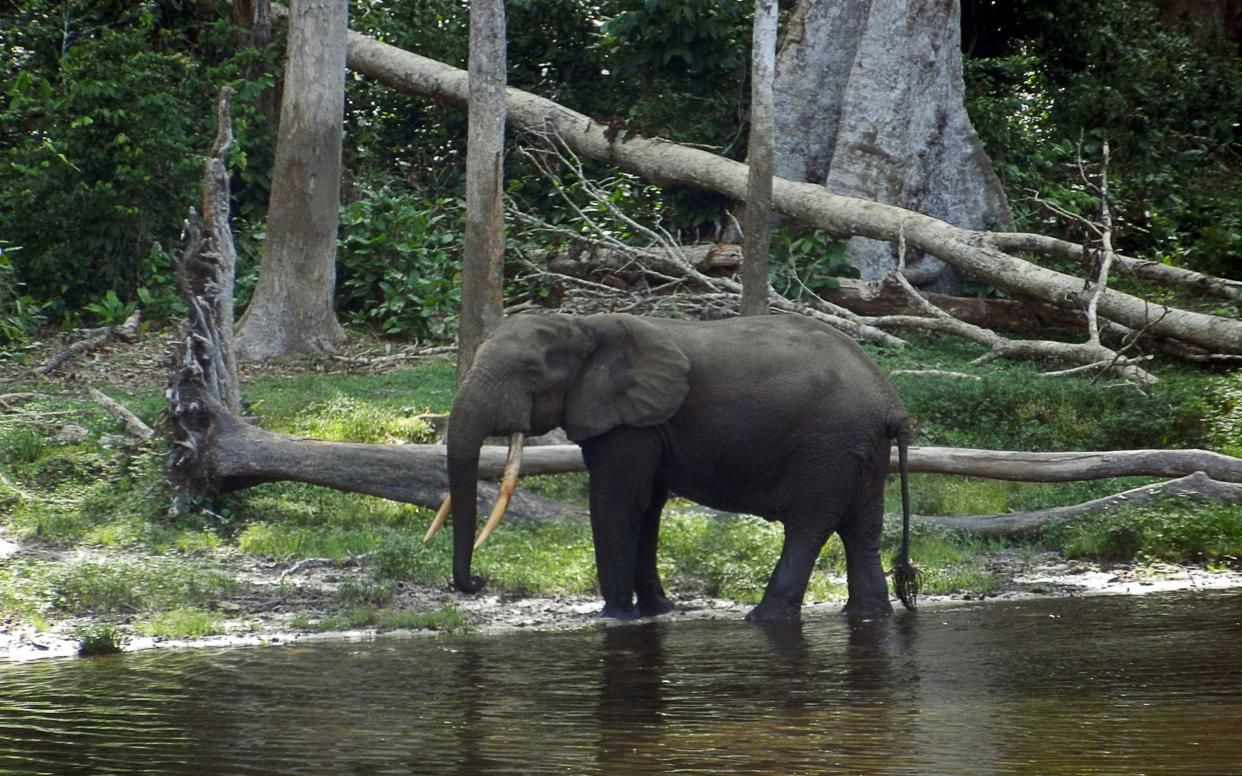Congolese poacher accused of killing 500 elephants sentenced to 30 years' hard labour

A poacher who is believed to be responsible for the deaths of more than 500 elephants will spend the next 30 years in forced labour after he was convicted of ivory trafficking and attempting to kill park rangers in the Republic of Congo.
Mobanza Mobembo Gérard has been dubbed ‘the butcher of Nouabale Ndoki’ National Park, a swathe of rainforest two and a half times the size of Greater London which stretches across the Congo Republic’s borders into the Central African Republic and Cameroon.
It is believed that Gérard, 35, first started hunting expeditions in 2008 and soon led a team of around 25 poachers through the bush to kill hundreds of rare forest elephants with military-grade weapons.
The poaching chief, who is originally from the neighbouring Democratic Republic of Congo, was convicted last week by a court in the Congo Republic’s Sangha region, according to the Wildlife Conservation Society (WSC), an NGO.
The Telegraph understands that Gérard has been surrounded or imprisoned several times by rangers over the last three years but has always managed to either shoot his way out or escape prison.
His trial and sentencing marked the first criminal conviction of a wildlife trafficker in the Republic of Congo. Previously, environmental crimes were tried in civil courts and incurred a maximum sentence of five years.
Gérard will also be required to pay damages of $68,000 (£51,710) to injured rangers.
“This detention is a major first in the battle against poaching and illegal smuggling of wildlife products,” said Richard Malonga, the head of WCS Congo which works in the Nouabale Ndoki park. “This creates opportunities to criminalise acts of poaching, and punish poachers even more severely.”
The sentence “sends an extremely strong message that wildlife crime will not be tolerated and will be prosecuted at the highest levels,” WCS regional director Emma Stokes said in a statement on Monday.
Nouabale Ndoki National Park in the north of the Congo Republic was created in 1993 and was named as a UNESCO world heritage site in 2012. It is a rare sanctuary in central Africa for endangered forest elephants, gorillas and chimpanzees.
A hundred years ago, there were an estimated 10 million elephants who roamed across Africa’s savvanahs and forests. But thanks to the lucrative ivory trade, poaching has decimated the continent’s elephant population.
There are now only an estimated 350,000 elephants left in Africa and approximately 10 to 15,000 of them are killed every year for their ivory tusks.
Most of the ivory is shipped to East Asia where a booming middle class use it in jewellery, ornaments and sometimes in traditional Chinese medicine.
China has historically been the biggest buyer of ivory but demand there has reportedly fallen significantly since Beijing banned the ivory trade at the end of 2017.
However, last week wildlife conservationists, rangers and safari tour guides told The Telegraph that poaching and bushmeat hunting has been surging across parts of Eastern and Southern Africa since the world went into lockdown to stop the spread of coronavirus.
Rangers in Kenya, another major wildlife sanctuary, told the newspaper that the pandemic has wrought havoc on many rural communities who often depend on tourism revenue to put food on the table. With the tourism revenue almost completely gone, the rangers said that many people were turning to bushmeat hunting or commercial poaching to feed their families.

